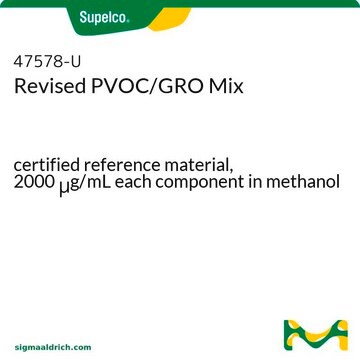8.07485
Polyethylene glycol
400, for synthesis
Synonym(s):
Poly(ethylene glycol), Polyglycol, Polyethylene oxide, Polyoxy ethylene, PEG 400, PEG
About This Item
Recommended Products
vapor pressure
<0.1 hPa ( 20 °C)
Quality Level
form
liquid
autoignition temp.
360 °C (DIN 51794)
potency
28000 mg/kg LD50, oral (Rat)
>20000 mg/kg LD50, skin (Rabbit)
pH
5-7 (20 °C, 100 g/L in H2O)
kinematic viscosity
97-110 cSt(20 °C)
mp
5 °C
transition temp
flash point >200 °C
density
1.13 g/cm3 at 20 °C
storage temp.
2-30°C
SMILES string
C(CO)O
InChI
1S/C2H6O2/c3-1-2-4/h3-4H,1-2H2
InChI key
LYCAIKOWRPUZTN-UHFFFAOYSA-N
Looking for similar products? Visit Product Comparison Guide
Application
Analysis Note
Hydroxyl value: 267 - 295
Average molecular mass: 380 - 420
Identity (IR): passes test
Due to its specific melting range the product may be solid, liquid, a solidified melt or a supercooled melt.
Storage Class
10 - Combustible liquids
wgk_germany
WGK 1
flash_point_f
281.5 °F - closed cup
flash_point_c
138.6 °C - closed cup
Certificates of Analysis (COA)
Search for Certificates of Analysis (COA) by entering the products Lot/Batch Number. Lot and Batch Numbers can be found on a product’s label following the words ‘Lot’ or ‘Batch’.
Already Own This Product?
Find documentation for the products that you have recently purchased in the Document Library.
Customers Also Viewed
Related Content
Polyethylene glycol (PEG), also sometimes referred to as polyethylene oxide (PEO), is a condensation polymer of ethylene oxide and water that has several chemical properties that make it useful for biological, chemical and pharmaceutical applications.
Our team of scientists has experience in all areas of research including Life Science, Material Science, Chemical Synthesis, Chromatography, Analytical and many others.
Contact Technical Service


